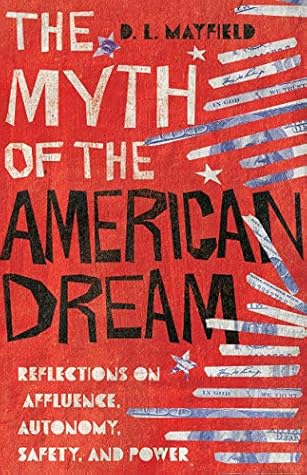More on this book
Community
Kindle Notes & Highlights
Read between
February 4 - February 14, 2021
It should not be surprising that these laws were never fully followed, but Jubilee remains a sign to the rest of the world that God’s ideal economy is one where righteousness shall flourish, which involves limiting the disparity between the wealthy and the poor, where creation is valued. God’s ideal economy banks on the idea that you shall know your neighbor who is suffering and that you shall be compelled to do something about it.
I am constantly battling numbness, one of the spiritual fruits of affluence.
What would good news for my lower-income neighbors feel like for me? Would it, just possibly, feel a bit like bad news to me in the beginning, if I wasn’t used to a truly equitable world?
“income can change on a dime, but wealth changes across generations.” They go on to write that “an estimated 80 percent of assets come from transfers from prior generations.”8 Home ownership has historically been one of the most important ways to build wealth in the United States. And yet from 1930 to 1960 less than 1 percent of all mortgages were given to African Americans—precisely because of discriminatory housing practices
I grew up listening to conservative talk radio squawk about welfare mothers, but it was strangely silent on mortgage subsidies, federal scholarships, tax breaks for businesses and corporations, and sweet deals for developers looking to attract a certain type of neighbors.
The deep and dark tragedy of affluence is how it takes away curiosity, how it accepts the world as it is, how it conforms to the talking points of empire and Pharaohs.
Affluence hears all of these statistics and then looks around at its own neighborhood. Everything seems to be going okay; everything seems to be working out for them. It must have been all that hard work; it must have been deserved. To be curious about any other answer is to open wide the door of responsibility, of kinship, of strings that connect our well-being
when well-meaning, well-intentioned privileged people hear only the financial success stories, they are being discipled in how to judge and belittle all of those who fail in the landscape of the American Dream.
The problem with easy dominant culture mantras like “live within your means” is that they give the privileged more ammunition to judge those who aren’t making it while at the same time it makes no moral demands on those who make more than enough.
Gentrifiers are unified by their lack of curiosity to the ways the American Dream has been particularly good to them.
Those who opt out of the public education system—whether through homeschooling or by immersing themselves in a specific denomination or Christian school or going to great lengths to send their children to an elite private or public school—are also making choices and placing their kids on a different kind of altar: one that assumes that the sacrifice is worth it and that their children need to somehow get ahead in a world where some will be the captors and others will be the captives.
As the apostle Paul says, “‘Knowledge’ puffs up, but love builds up” (1 Corinthians 8:1). Learning for the sake of acquiring more than someone else is the definition of a puffed up education. But loving and building resources into the groups that have historically been disinvested in by both the system and by individuals? That’s what it means to love our school and our neighborhood: to build power, starting from the very bottom of the hierarchy.
I’ve had to ask myself time and again what my highest value for my family is: Do I want my child to “succeed” in the cultural-achievement oriented sense, or do I want her to succeed at loving her neighbor as herself? Which value is stronger?
The myth of safety and wellness continues to unspool around us, one more example of how humans love to create theories and theologies about why some people get sick and others don’t, why some get well and others die, and our own roles in keeping the ones we love alive, safe, well, and happy.
There is no way we can move forward in welcoming the stranger in the United States if we don’t assess the situation honestly: our morality has slipped to the point where we do not care that people will suffer and die due to our own desire for safety. In fact, according to polls put out by Pew Research, White evangelicals were the least likely group to identify a moral need to resettle refugees (with only 25 percent saying we should).
Christians need to move away from charity and compassion work (individuals and communities giving out of their abundance) and toward community development and justice work, where oppressive systems and policies are changed.
I started to believe that the biblical ethic is not about being safe or in power or even being removed from the world. Instead, the Bible seems to show us the radical love of God and for God’s desire that we should live out sacrificial neighbor love.


